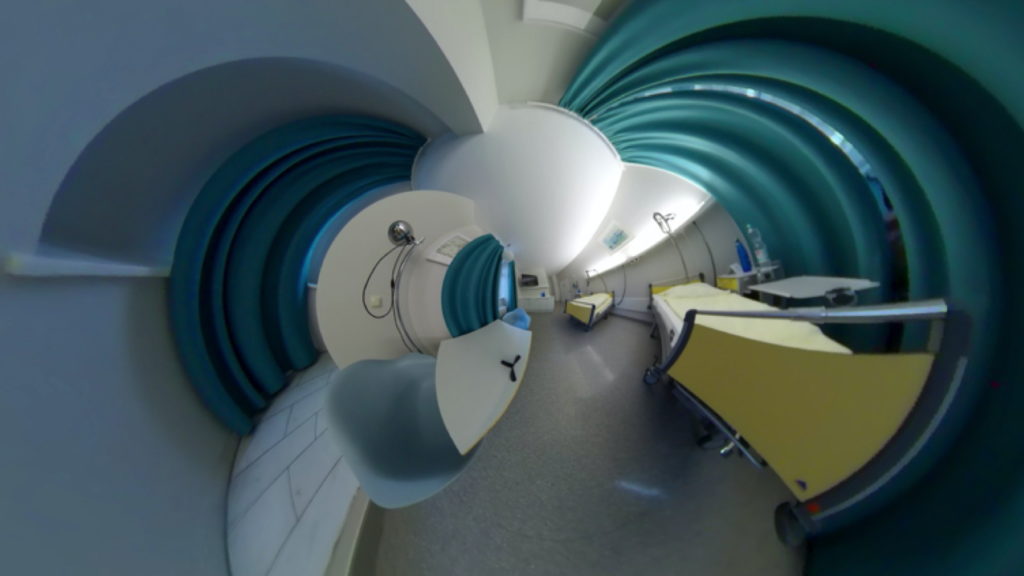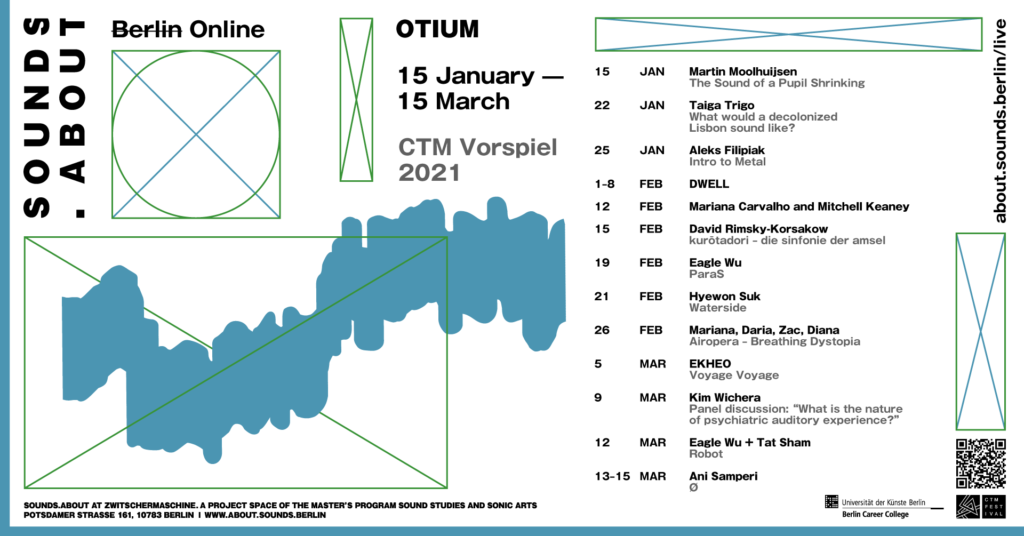
Kim Wichera
Panel discussion: “What is the nature of psychiatric auditory experience?
Zoom link: https://zoom.us/j/91410383136?pwd=SXVUZ01XTld3amNEUEh3QWZtaGh6QT09
March 9, 18:30
“Listening to the world is not an innate,
universal capacity, the logical result of ears
encountering sound waves. Rather, it is
something we learn how to do, and we learn
how to listen in an environment that is already shaped by and coursing with power.”
[Daughtry 2015]
A sound’s salience and emotional charge depends upon the life histories of the people who hear it, and upon the comparative backdrop against which they listen to the sounds that are emplaced in a particular time and location.
As starting point of an attempt to find new vocabularies, new theoretical models and new arguments about listening in general as well as about psychiatric institutions, people who work in psychiatric institutions and people who have been users of the services will be asked:
- How have people who work in psychiatric institutions and ex-users of the services been identifying the sounds, interpreting their significance, and mapping them onto their knowledge of the institution?
- Who influences the act of listening in the psychiatric system?
- Who is responsible for sounding in the psychiatric system?
- How is the environment designed and built to affect sound?
- Which objects mediate sound for listeners?

